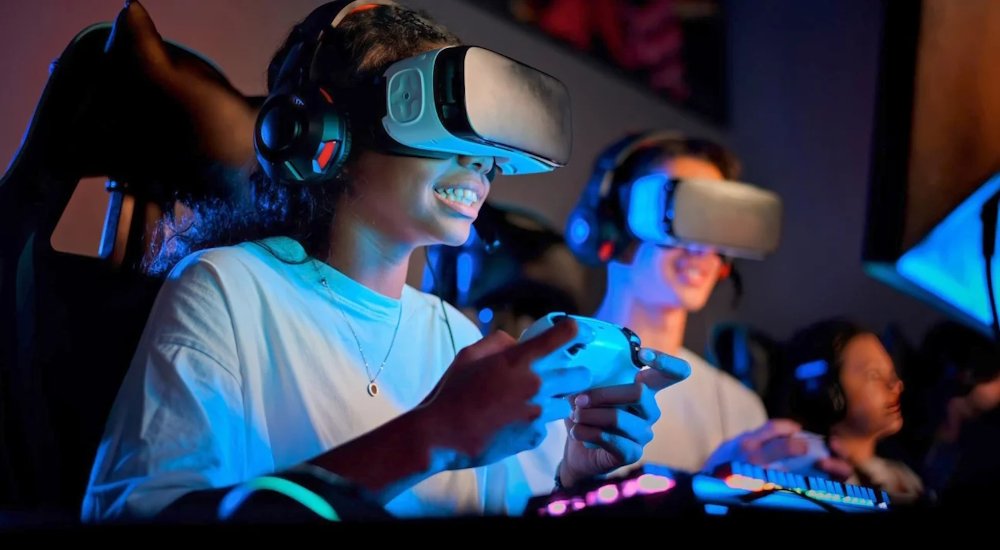
Artificial Intelligence (AI) has evolved from being a background technology to one of the most powerful forces shaping the modern gaming industry. What once served as a basic set of programmed rules for computer opponents has become a sophisticated system capable of learning, adapting, and enhancing every aspect of the gaming experience—from design and storytelling to player engagement and monetization.
1. Smarter and More Realistic Non-Player Characters (NPCs)
Traditionally, NPCs followed scripted behavior patterns, making gameplay predictable after a few encounters. AI is changing this. With machine learning and neural networks, developers can create NPCs that react dynamically to a player’s actions. Games like Middle-earth: Shadow of Mordor introduced the “Nemesis System,” where enemies remember previous interactions and adapt accordingly. Modern AI can take this further—creating virtual opponents that develop new strategies over time, making gameplay more immersive and less repetitive.
2. Procedural Content Generation
AI-driven procedural generation allows developers to create vast, varied worlds without manually designing every element. Games such as No Man’s Sky and Minecraft demonstrate how algorithms can generate endless, unique environments. Newer tools leverage generative AI to craft not only terrains but also quests, dialogue, and even entire storylines tailored to each player’s playstyle, making every gaming session a unique experience.
3. Personalized Player Experiences
AI’s ability to analyze data in real time enables games to adjust difficulty levels, pacing, and even narrative choices based on player performance and behavior. This personalization enhances engagement and retention. For example, AI systems can detect frustration or boredom and dynamically change the challenge level or introduce rewards to maintain player motivation.
4. Enhanced Game Development and Testing
AI is also streamlining the game development process. Developers are using AI-powered tools to automate repetitive tasks such as animation, bug detection, and quality assurance. Machine learning algorithms can simulate thousands of gameplay scenarios to identify glitches, balance issues, or exploits faster than human testers ever could. This not only reduces development time but also lowers production costs.
5. Voice, Dialogue, and Narrative Generation
Natural language processing (NLP) technologies allow for more interactive storytelling. AI-driven dialogue systems can create dynamic conversations that respond naturally to player choices, blurring the line between scripted narrative and real-time interaction. Developers are beginning to integrate AI-generated dialogue and voice acting, giving characters emotional nuance and diversity without recording every line manually.
6. AI in Esports and Game Analytics
In competitive gaming, AI plays a crucial role in analyzing matches, detecting cheating, and improving player training. Advanced analytics powered by AI can evaluate performance data to offer insights into strategy, strengths, and weaknesses. For esports organizations, this means smarter coaching and more balanced competition.
7. The Rise of Generative AI in Game Creation
Generative AI tools such as OpenAI’s models, Runway, and NVIDIA’s ACE for Games are allowing developers—and even players—to co-create assets, textures, characters, and storylines on the fly. This democratizes game creation, enabling indie developers or even non-coders to produce professional-quality games with fewer resources.
8. Ethical and Creative Challenges
Despite its advantages, AI also raises challenges. The automation of creative roles may threaten certain jobs within the industry, such as voice actors or level designers. There are also ethical questions around data privacy, AI bias, and the potential for AI-generated content to perpetuate harmful stereotypes. Balancing innovation with responsibility will be key to ensuring AI remains a force for creativity rather than control.
Conclusion
AI is no longer just a background system—it is a creative partner, a design assistant, and a gameplay architect. From building living, breathing worlds to personalizing every player’s journey, AI is redefining how games are made and experienced. As technology continues to advance, the gaming industry stands at the frontier of an era where the line between human creativity and artificial intelligence becomes increasingly blurred—ushering in a new age of interactive entertainment.
